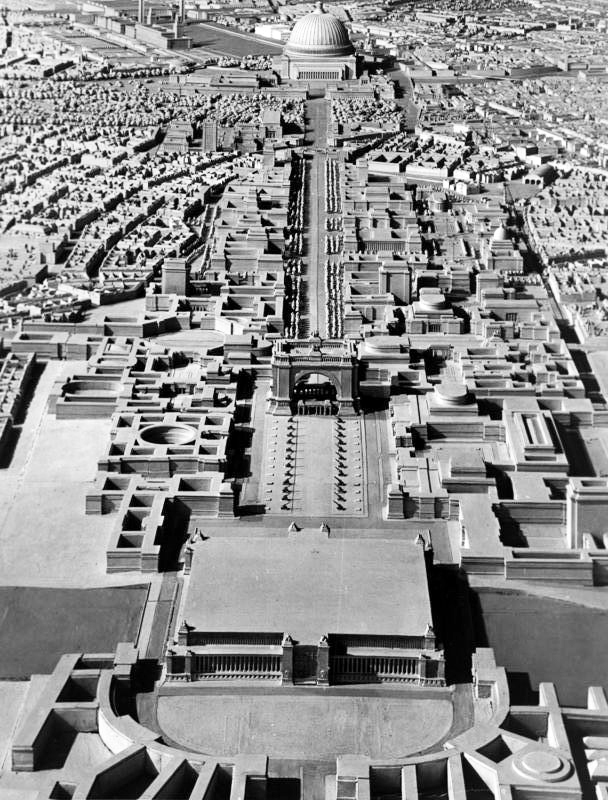 THE INFLUENCE OF THE NAZIS IN BERLIN
THE INFLUENCE OF THE NAZIS IN BERLIN
In Berlin, as in the entire Reich, Nazi control extended to all areas of life - the press and radio were ruled by Gobbels, children enrolled in Nazi youth organizations, and in each tenement house there was a caretaker appointed by the Nazis, who was also a Gestapo spy. It was even decreed, that women should give up makeup as a luxury contrary to the German spirit and it was one of the few dictates of the Nazis, which was not taken seriously. Anti-Nazi criticism - even of the lightest caliber - brought a visit by the Gestapo. Although it was possible to avoid joining the NSDAP itself, however, it was impossible not to become a member of one of the system of related organizations, which covered all spheres of life - from equestrian clubs and dog breeders' associations to the “Reich Church” or the "German League of Young Women”. This was the second phase of the Gleichschaltung - drawing the entire population into the Nazi network.
As the capital of the Reich, Berlin has become the show city of banners, uniforms and parades. The Nazis tried to convey an image of order and dynamism, The "new Germany" marching towards the future.
This culminated in the Olympic Games in 1936 year. held on the giant, a specially built stadium for this purpose, in the Berlin suburb of Pichelsdorf. Hitler's expectations, that the Games would show the superiority of the Aryan race were brutally dispelled by the Negro athlete Jesse Owens, winner of the most medals. On the grandstand, Hitler refused to shake the hand of the American athlete. (The less known fact is, that President Roosevelt did the same when Owens returned home.)
Like many former rulers of Germany, Hitler felt uncomfortable in Germany, being probably aware of the fact, that the Berliners do not support him, they are only forced to endure. He was also careful, that the city is not majestic enough as the capital of the "Thousand-Year Reich."” and from 1936 he spent a lot of time with his favorite architect, Silly spears, creating wide-ranging plans for the reconstruction of post-war Berlin, which was to be called "Germania”. This city would be a monument to the expected victory in the coming war and the capital of a huge empire. In his millennial megalomania, Hitler spent hours thinking about the impression, what the ruins of Germania will have on distant posterity, hence there was a need to use the most beautiful materials and construction on a huge scale. Meanwhile, he preferred to stay at Berghof in Berchtesgaden himself.